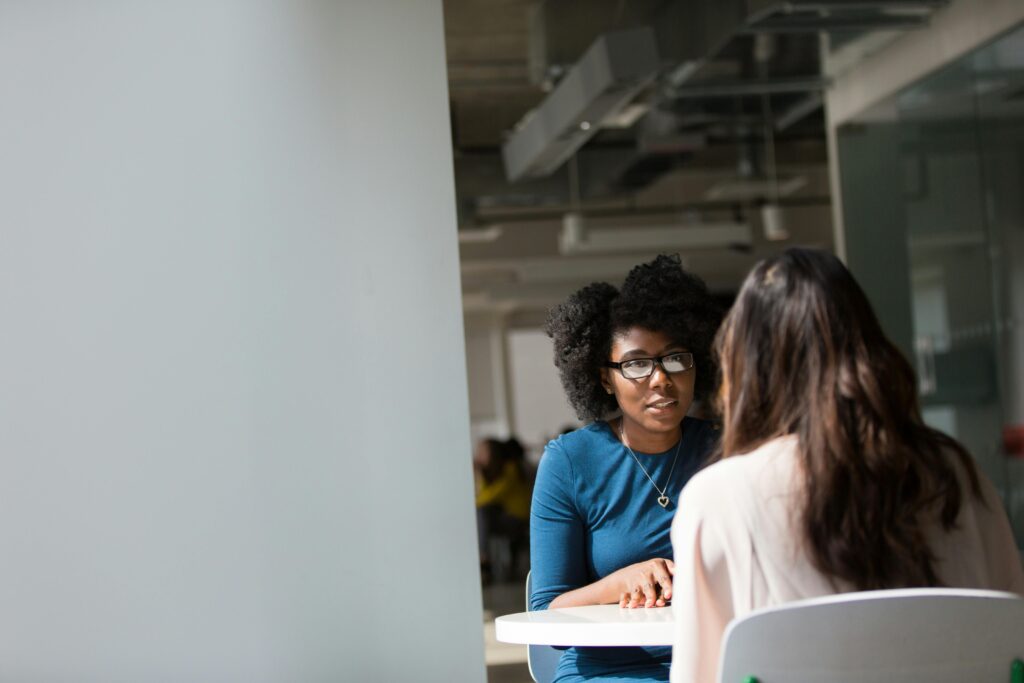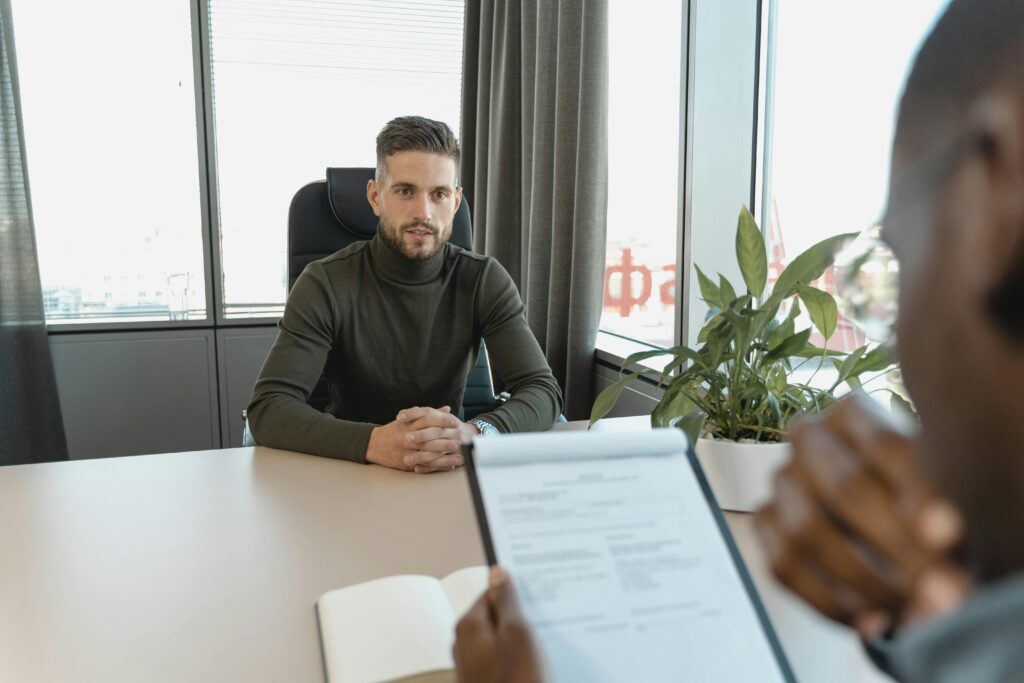Navigating the post-interview waiting period can be both exciting and nerve-wracking. While you may be eager to know the outcome, there are often subtle signs that can indicate a positive result. Recognizing these signs can help you gauge your chances of receiving a job offer. From the interviewer’s body language to the types of questions asked, these indicators can provide valuable insights into how well you performed and how interested the company is in bringing you on board. Here are ten signs that suggest you might be on the path to landing the job after your interview.
Here are 10 signs you will receive job offer, along with detailed explanations and examples:
1. Positive Body Language from Interviewers:
One of the most encouraging signs during an interview is the positive body language exhibited by the interviewers. This non-verbal communication can reveal a lot about their level of interest and engagement. For instance, consistent eye contact indicates that they are paying close attention to your responses and are genuinely interested in what you have to say. Smiling and nodding are also strong indicators of approval and agreement, suggesting that they find your answers satisfactory and engaging. Additionally, if the interviewers lean in towards you, it shows they are keen to hear more and are fully engaged in the conversation.
An open posture, such as uncrossed arms and legs, signals a welcoming and approachable attitude, indicating that they are comfortable and open to your ideas. Mirroring, where the interviewers subconsciously mimic your body language, is another positive sign, as it suggests they are building a rapport with you. Frequent head nods during your responses indicate agreement and understanding, showing that they are in sync with your thoughts. Recognizing these positive body language cues can help you gauge the interviewers’ interest and confidence in your suitability for the role. Its a strong indicator and sign you will get the job after interview.
2. Longer Interview Duration:
When an interview lasts longer than the scheduled time, it’s often a positive sign that the interviewers are interested in learning more about you. This extended duration indicates that they are engaged in the conversation and want to delve deeper into your experiences and qualifications. For example, if a 30-minute interview extends to an hour, it suggests that the interviewers are thoroughly evaluating your fit for the role and are keen to explore your potential contributions to the team. Long duration is one of important indicators that you will receive job offer after intetview.
3. Detailed Questions About Your Experience:
When interviewers ask detailed questions about your past roles and achievements, it’s a strong indication that they are seriously considering you for the position. These questions go beyond the surface level and delve into the specifics of your work history, skills, and accomplishments. For example, they might ask you to describe a particular project you led, the challenges you faced, and how you overcame them. This shows they are interested in understanding your problem-solving abilities and how you handle real-world situations.
Additionally, they may inquire about your contributions to team projects, asking for examples of how you collaborated with colleagues and what role you played in achieving team goals. This indicates they are assessing your teamwork and leadership skills. They might also ask about your decision-making process, seeking to understand how you approach complex problems and make strategic choices.
Overall, detailed questions about your experience demonstrate that the interviewers are thoroughly vetting your qualifications and envisioning how you would fit into their team. It indicates they are interested in your specific skills and experiences and are considering how you can contribute to their success.
4. Introduction to Team Members:
Being introduced to potential future colleagues during the interview process is a strong indicator that the company is seriously considering you for the role. This step often signifies that they want to see how you interact with the team and gauge the chemistry between you and your potential coworkers. It also provides you with an opportunity to get a feel for the team dynamics and the work environment.
For example, after the formal interview, the hiring manager might take you on a tour of the office and introduce you to various team members. They might say, “I’d like you to meet Sarah, our project manager, and John, our lead developer. They can give you more insight into the day-to-day operations and the projects we’re working on.” This not only allows you to ask questions and learn more about the team but also gives the team members a chance to interact with you and provide feedback to the hiring manager.
5. Discussion of Next Steps:
When interviewers take the time to outline the next steps in the hiring process, it’s a strong indication that they are interested in moving forward with your application and a clear sign that you will receive job offer after intetview. This might include details about additional interviews, reference checks, or timelines for making a decision. For example, they might say, “We’ll be in touch soon to schedule a final interview with the department head,” or “Expect to hear from us within the next week regarding our decision.” This level of detail shows that they are considering you as a serious candidate and are planning the subsequent stages of the hiring process.
6. Salary and Benefits Discussion:
When interviewers bring up the topic of salary and benefits, it’s a strong indication that they are seriously considering making you an offer. This discussion typically occurs towards the end of the interview process and signals that they are interested in aligning their offer with your expectations. For example, they might ask, “What are your salary expectations for this role?” or “Are there any specific benefits that are important to you?” Engaging in this conversation shows that they are evaluating how to meet your needs and ensure mutual satisfaction, which is a positive sign that you are a top candidate for the position.
7. Positive Feedback:
Receiving positive feedback during or after the interview is a strong indicator that you are being seriously considered for the role. This feedback can come in various forms, such as verbal praise, enthusiastic comments, or affirmative body language. For example, if the interviewer says, “We were really impressed with your experience in project management,” it shows they value your skills and see you as a strong candidate. Positive feedback might also include comments like, “Your approach to problem-solving is exactly what we’re looking for,” or “You have a great fit with our company culture.”
Such feedback not only boosts your confidence but also provides reassurance that you are on the right track. It shows that the interviewers recognize your potential contributions and are excited about the possibility of you joining their team. Positive feedback is a clear sign that you have made a favorable impression and are being seriously considered for the job.
8. Follow-Up Communication:
Receiving prompt and positive follow-up communication from the HR team or hiring manager is a strong indicator of continued interest in your candidacy. This type of communication often includes a timely email or phone call shortly after the interview, expressing gratitude for your time and outlining the next steps in the hiring process. For example, you might receive an email that says, “Thank you for taking the time to meet with us today. We were impressed with your qualifications and would like to move forward with the next steps. Please expect a call from us within the next few days to discuss further details.” Such messages not only convey appreciation but also provide clarity on what to expect next, demonstrating that the company is organized and eager to keep you engaged.
This proactive approach shows that they value your potential contribution and are keen to maintain momentum in the hiring process, which is a positive sign that you are a strong contender for the role.
9. Tour of the Office:
Being given a tour of the office during the interview process is a strong indicator that the company is seriously considering you for the role. This gesture goes beyond the formal interview setting and allows you to get a firsthand look at the work environment, meet potential colleagues, and get a feel for the company’s culture. For example, after the interview, the hiring manager might say, “Let me show you around our office so you can see where you’ll be working.” This tour often includes introductions to team members, a walkthrough of different departments, and a glimpse into the daily operations of the company.
The tour also gives you an opportunity to observe the workplace atmosphere. You can see how employees interact with each other, the layout of the office, and the overall vibe of the environment. This can be crucial in determining whether the company’s culture aligns with your preferences and work style.
Overall, an office tour is a positive sign that the company is envisioning you as part of their team and wants you to feel comfortable and excited about the prospect of joining them. It shows that they are invested in making a good impression on you, just as you are on them.
10. Invitation to Ask Questions:
When interviewers invite you to ask questions about the company, team, and role, it is a strong indication that they are interested in ensuring you are a good fit for the position. This opportunity allows you to engage in a two-way conversation, demonstrating that the interviewers value your input and want to address any concerns or curiosities you might have. For example, they might say, “Do you have any questions about our company culture or the team you’ll be working with?” This invitation shows that they are open to transparency and are keen to provide you with all the information you need to make an informed decision.
Moreover, this part of the interview allows you to assess whether the company aligns with your career goals and values. It gives you a chance to understand the work environment, management style, and growth opportunities. For example, you might ask, “How does the company support employee growth and development?” or “What are the next steps in the hiring process?”
Overall, an invitation to ask questions is a positive sign that the interviewers are considering you as a serious candidate and want to ensure mutual compatibility. It reflects their interest in your perspective and their commitment to making the hiring process as transparent and informative as possible.
Conclusion
In conclusion, recognizing the signs that you might get a job offer after an interview can help ease the anxiety of the waiting period and give you a better understanding of your standing with the potential employer. Positive body language from interviewers, longer interview durations, detailed questions about your experience, introductions to team members, discussions of next steps, salary and benefits conversations, positive feedback, prompt follow-up communication, office tours, and invitations to ask questions are all strong indicators that you are being seriously considered for the role. These signs reflect the interviewers’ interest and confidence in your suitability for the position, suggesting that you have made a favorable impression. By being aware of these cues, you can feel more confident about your chances and better prepare for the next steps in the hiring process.
Preparing for a job interview
you might be intreseted in know more about your career PLAN



